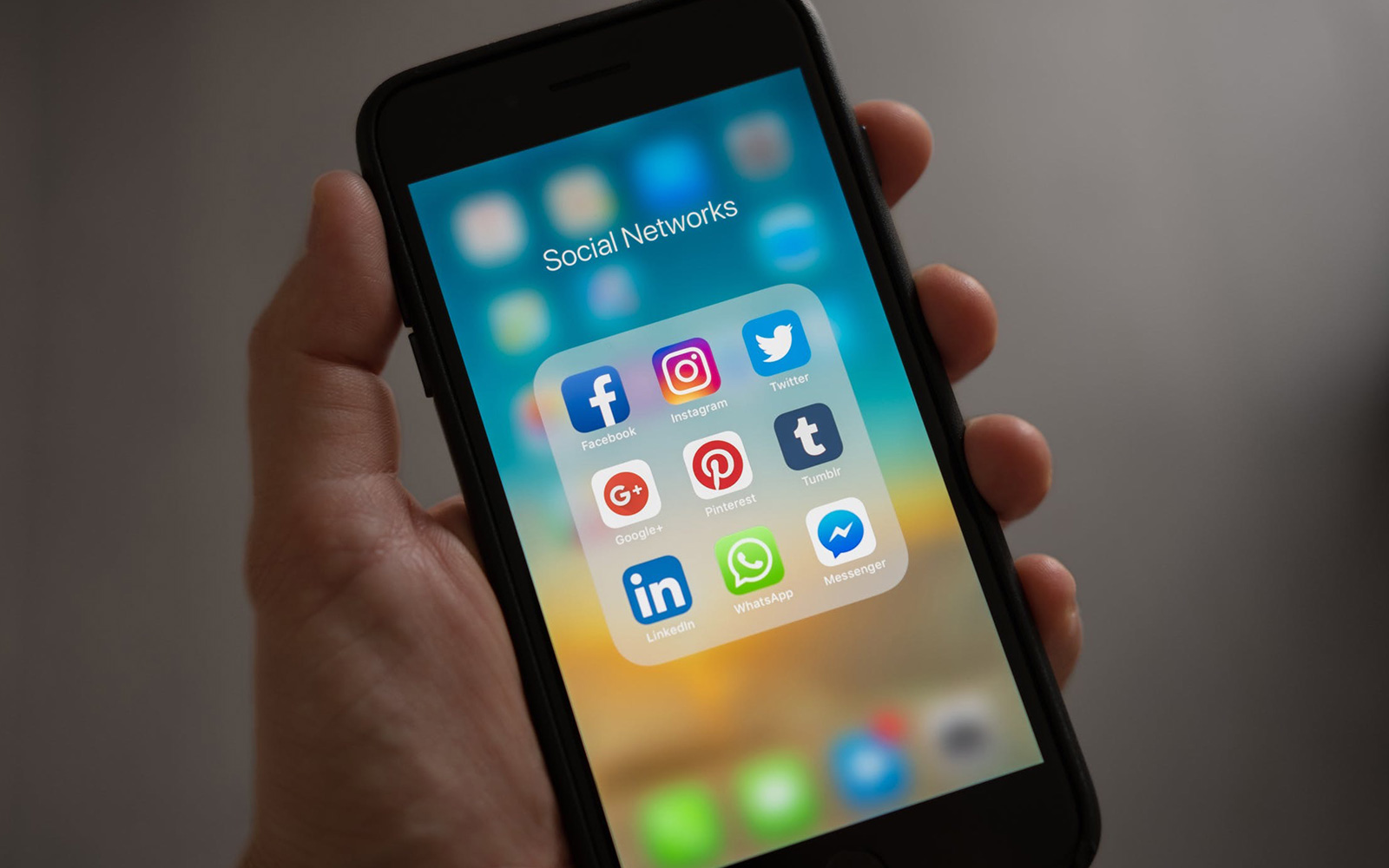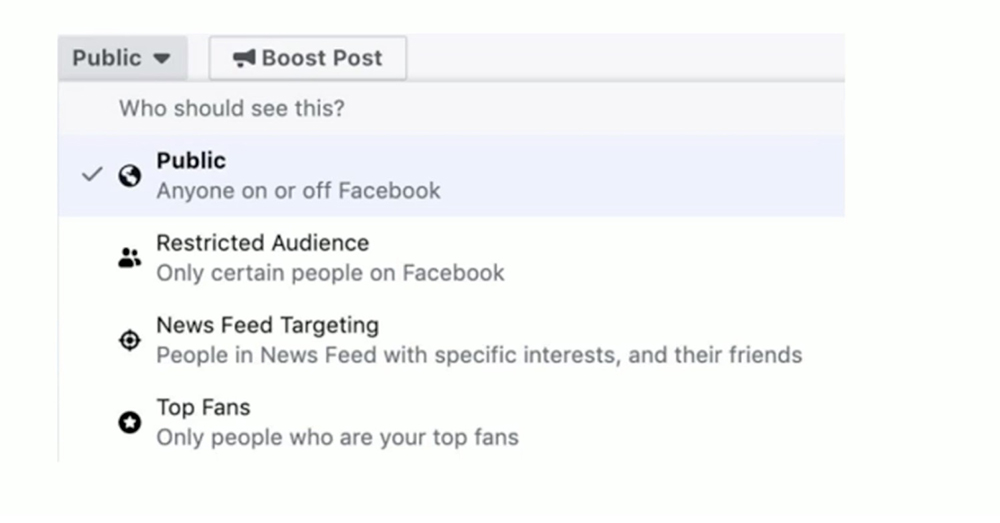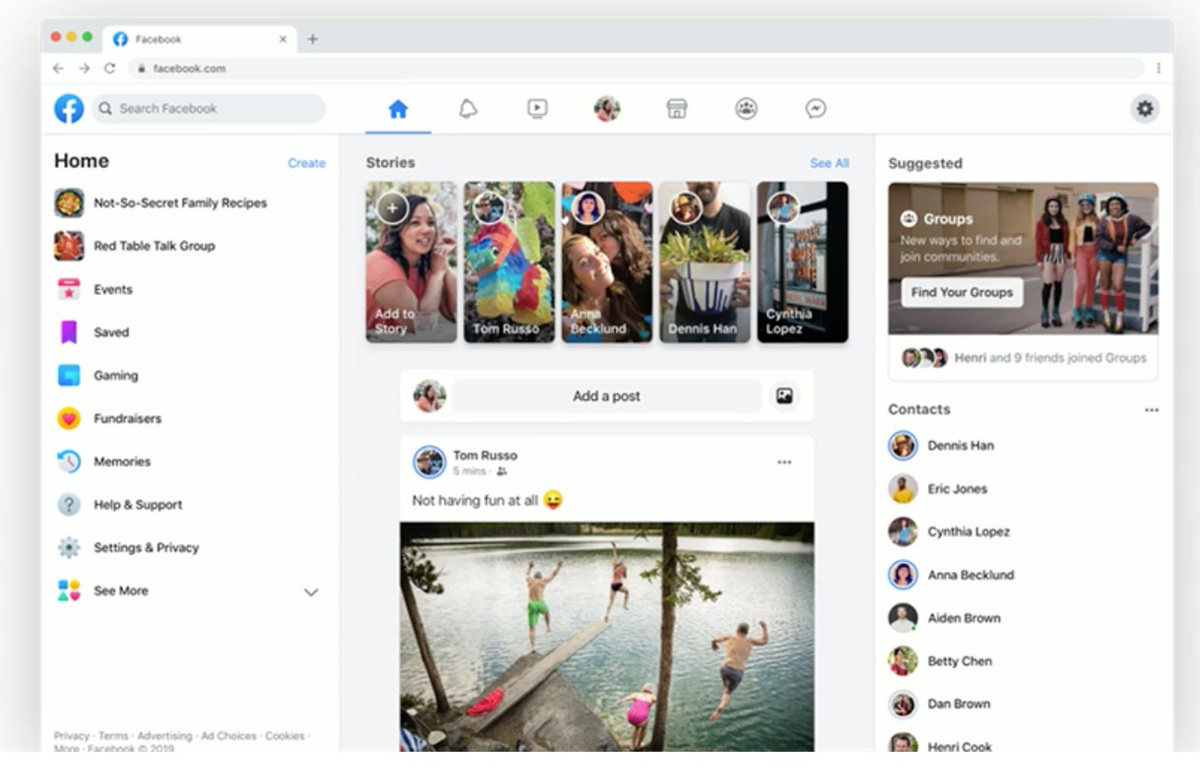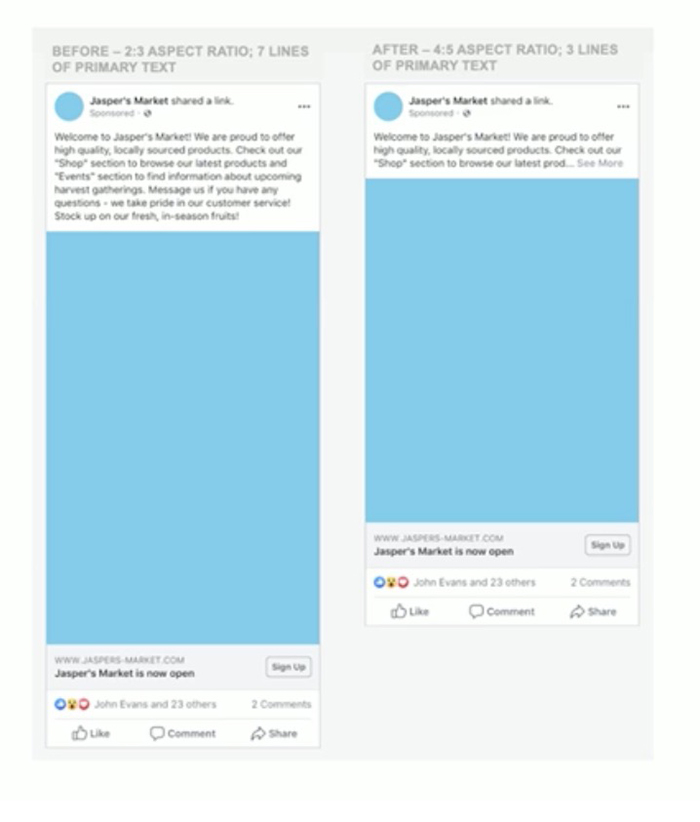We’ve all noticed that we see less and less posts on Facebook from friends and family and more targeted ad content, so it should be no surprise that the platform has shifted to a pay-to-play model.
What I didn’t quite expect was how drastic it would be until participating in a webinar hosted by the Marketing Academy for Small Business. After learning that organic business posts will become somewhat obsolete due to Facebook’s new definition of quality, I realized it’s time to rethink social strategy as a whole. These changes are set to launch Fall 2019, and will affect both Facebook and Instagram.
If you’re in the digital space, or own a business, you know that social media is an instant marketing tool that reinforces your brand by humanizing your company. It combines branding, personality and soft sales to create a persona for your brand. According to a recent article published by Hootsuite, over 97% of marketers are now using social media to engage with 3.2 billion social media users worldwide. It is a powerful marketing tool, but Facebook has announced upcoming major changes to look out for this fall that will change your organic social strategy forever.
While as marketers we all know that there are tweaks being made to the platform regularly, these new changes are literal game changers not only for marketers, but also businesses. The goal? According to Mark Zuckerberg, CEO & Founder of Facebook, “increasing meaningful content.” How? By measuring organic post relevancy based on dialogue and shares, not “thumbs up.” The less conversational engagement, the less your post will be seen, if it’s seen at all. So, is Zuckerberg trying to make social media more social, or transform Facebook into an ads platform? In my opinion, the latter.

The Changes
- Organic targeting for business pages
- Instagram removes likes
- Facebook group changes
- Desktop newsfeed changes
1. Organic Targeting
Facebook is releasing organic targeting for business pages. Similar to targeted audiences for paid ads within Facebook, you can now create targeted audiences for your organic posts. Why? So you are showing content to people who are very likely to engage, react, share, and/or comment. When creating an organic post you will now have the option to choose a predetermined or new audience.

By doing so, you have the ability to increase your reach. Since post visibility is going to be weighed heavily on engagement, this gives you a chance to target users that are further down the funnel and more likely to engage. Remember, the more engagement, the more reach, so be sure to create highly targeted audiences that the post is relevant to.
Another huge change for Facebook business pages is the potential to show up less if you include offisite links in your organic posts. For example, most of the time if you are promoting your brand’s product or blog post you write a brief snippet and then take the user to your website. Facebook will be cracking down on this and monitoring it. Why? Facebook wants to keep people on the platform, not take them off.
2. Instagram Removes “Likes”
We all knew it was coming… Instagram will be removing likes and number of video views from posts. Admins will still be able to see these metrics, but followers will not. The thought process? Content should be based on its relevancy and social proof, not the number of likes or views it gets. On average, people miss about 70% of posts in their feed, Zuckerberg wants to ensure that the 30% users do see, is the best 30%, in order to improve the user experience. Since likes will no longer be used to validate a post, comments will weigh more.

Instagram has said that the beta testing has shown decreased engagement, but the focus is on quality and relevancy and predicts that over time, engagement will bounce back. Additionally, low quality posts will be removed from the explore and hashtag page. Posts that load up on hashtags that are not relevant to their brand will begin to be weeded out and replaced with accounts that show high engagement and relevancy.
Instagram has become a platform based on likes and popularity of a faceless influencer account. This has resulted in low quality content. This change will force companies to form relationships with potential ambassadors and not base the value of a product off of likes received by a sometimes irrelevant audience. In my opinion, the bright side to this is that relationships will need to be formed in order to “influence”, which to me, holds more weight than likes. Relationships build more trust than likes. So how do you continue to be found? Post relevant, engaging content that starts conversations and gets shared.
3. Facebook Groups
The next change will affect Facebook groups. Facebook will be closely monitoring what content is posted within a group and if it is relevant. They will also be checking to make sure it adheres to their community standards. Additionally, it will be holding group admins more accountable for what content they allow to be posted. For instance, if the posts approved are continuously malicious or condone violence, racism, etc. Facebook now will have the right to shut down the group. Other changes include allowing members who have left a group to delete their prior posts and notifications when posts are flagged or removed. The biggest effect? Organic group posts will potentially drop to 6.5% reach.
4. Desktop Newsfeed Changes
Another major change will be to the Facebook newsfeed. We have already seen a change in the mobile feed, but desktop is getting a total overhaul. The focus will be on creating meaningful content. While quick links will still remain on the left hand side, “home” navigation will be added to the top of the page, and groups will move to the right hand side. This will drastically decrease real estate for posts which will result in much smaller post images and only three lines of text being visible before the “see more” text appears.

Currently organic business page posts receive between 1.6-2% visibility. With the new change, this number is going to decrease even more. So how do you maintain your organic reach? According to Zuckerberg, “Create posts that encourage meaningful interaction.” In order to do this you will need to keep quality scores top of mind. Some things to remember when it comes to what is considered quality to Facebook: reactions hold more weight than likes, comments and shares are more valuable than likes, high engagement with shared content makes it relevant, and shared content via messenger shows high engagement. Moving forward, meaningful content will equal more reach.

Adjusting Your Social Strategy
In the eyes of Facebook and Instagram, meaningful content = reach. So how do you continue to stay relevant in the feeds and reach users? You need to develop a strategy that focuses on carefully curated organic content and creative assets that entice users to start a conversation and share your posts, hence increasing your visibility. Focus on responding to comments, reacting, not just liking posts, curating posts that people want to share, and growing relationships with potential ambassadors and companies. Through dynamic posts, company updates, initiating conversations, and targeting organic audiences, you will engage your current audience that is further down the funnel and expand your consumer audience via shared content. Focus on creating dialog with targeted users. Most importantly, create relationships and nurture them.
Keep in mind that readjusting your social strategy will require more time within accounts. With the new updates, it is imperative to “speak” with users regularly, which may require more staff if you are an agency managing multiple accounts.
Final Thoughts
Appearing organically has become more of a challenge and requires much more time and manpower to stand out in the crowd. Previously it was OK to just have a social media presence, now Facebook and Instagram are putting an emphasis on engaging with content and creating a dialogue. The strategy has shifted from simply just posting an update, to creating content that makes users want to start a conversation.
In my opinion, this is the beginning, or should I say middle, of the end for organic posts. As the digital space becomes more and more competitive for businesses, the pay-to-play model will take over. It will be interesting to see how this affects not only businesses, but the personal networking aspect of a social platform that’s original focus was on relationship building. Will paid ads kill the human factor? One can only wait and see what the Fall brings.


